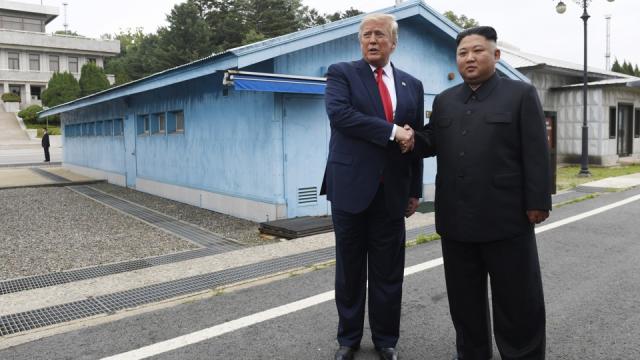The newly appointed U.S. Secretary of of Defense is in Seoul and he has quite a full plate of issues to discuss with his ROK counterparts:

U.S. Defense Secretary Mark Esper arrived in South Korea on Thursday for talks that are expected to focus on a series of requests Washington has been making to Seoul, including a greater financial contribution to the cost of stationing American troops here.
Also expected to be on the agenda for Esper’s talks with South Korean Defense Minister Jeong Kyeong-doo are the U.S. initiative to secure the shipping routes in the Strait of Hormuz and Washington’s wish to get a military information-sharing pact between the South and Japan renewed.
Esper landed at Osan Air Base in Pyeongtaek, 70 kilometers south of Seoul, from Mongolia for a two-day visit as part of his five-nation tour of the Asia-Pacific region, which includes stops in Australia, New Zealand and Japan, according to defense ministry officials. It is his first overseas trip since taking office last month.
Yonhap
You can read more at the link, but trying to get the ROK to pay significantly more for US troop upkeep will be extremely challenging. Also getting the ROK to contribute any serious naval commitment to the Strait of Hormuz will likely be challenging as well considering the relatively good relationship the ROK has with Iran. The ROK could look at this issue as that Iran is not messing with their energy shipments so why give them excuse to by supporting the U.S. on this issue?
Other issues to be discussed is the GSOMIA that South Korea has threatened to end with Japan over the current trade dispute and Seoul OPCON transfer. I would think the OPCON transfer should not be contentious considering Seoul wants the transfer, but the GSOMIA issue may be challenging.
Like I said the Secretary Esper has a full plate working these challenging issues with the ROK.





/arc-anglerfish-arc2-prod-mco.s3.amazonaws.com/public/JKEOI6AMFREJ5AMNRM362MZTGA.JPG?w=640&ssl=1)



